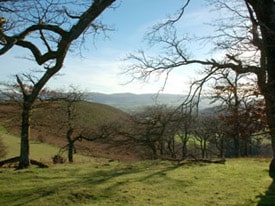Support us from £3/month
We deal with almost 1000 cases a year assisting communities, groups and individuals in protecting their local spaces and paths in all parts of England and Wales. Can you help us by joining as a member?
We are pleased that the Welsh Government, in the proposed new Glastir scheme for agri-environment payments in Wales, recognises the value of common land in providing public benefit.
The government proposes, in the new phase, to introduce a single scheme for common land. This will reduce bureaucracy and administration costs and enable the scheme to be targeted to the particular needs of common land.
Thanks in part to the government’s appointment of Commons Development Officers, who facilitate schemes on commons and liaise with the grazing associations, many more commons are being included in the agri-environment scheme. The government hopes that, by 2015, over 60 per cent of Welsh common land will be sustainably managed within Glastir.
We have responded to the government’s consultation.
Commons cover one-eighth of the land area of Wales and are immensely important, not only in supporting farmers and graziers, but also for their contribution to landscape, biodiversity, history, culture and public enjoyment.
Common land benefits the rural economy of Wales by providing an environment which encourages visitors. We have the right to walk on all commons and to ride on many of them.
We are delighted that there has been such a good take-up of Glastir on commons and believe that the proposed single scheme for commons will encourage further engagement by grazing associations. This is very good news, as it will benefit the landscape, its wildlife and our enjoyment of them.
However, we have suggested that the effectiveness of the Glastir scheme would be enhanced if the Welsh Government were to encourage better information on grazing associations and Commons Development Officers, which are doing a valuable job.
We have also noted that there is no question in the consultation paper about cross-compliance. When landowners and occupiers are receiving public money to manage land, they should be required to comply with their legal responsibilities to keep all public paths in good order. If they fail on this, their funding should be cut.
We suggest that there should be maps on the internet showing which land is subject to Glastir payments so that the public can help local authorities in monitoring the state of paths on Glastir land and report transgressions.
In addition, where funding applies to public-access land, the quid pro quo should be good access-points to that land so that people can enjoy their right to walk, and perhaps to ride, there.

